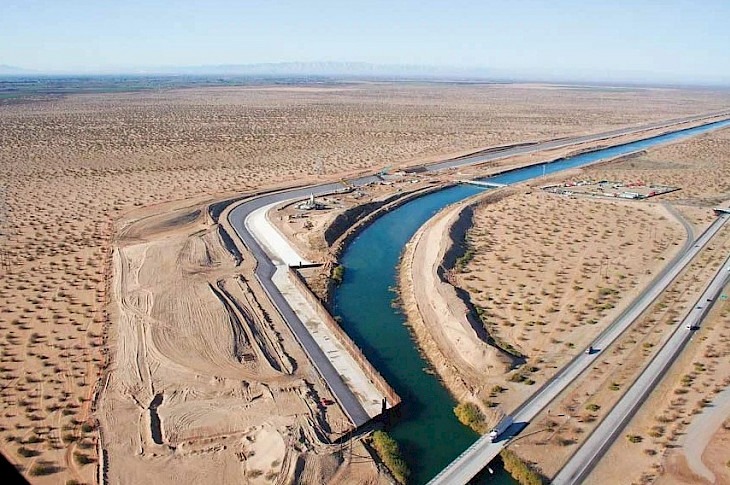President of Uzbekistan Shavkat Mirziyoyev has announced that 2024 will be a period of transitioning to an emergency mode for water conservation. The country's economy is seriously affected due to the irrational use of water, Asiaplustj.info reports.
Only 20% of water resources are generated within Uzbekistan, with the rest coming from neighboring countries. The situation is exacerbated by difficulties in managing transboundary sources and their reduction due to climate change, emphasized President Mirziyoyev.
Approximately $1 billion is spent annually on water management expenses in Uzbekistan. However, water is used inefficiently. For example, irrigating one hectare of cotton fields consumes 10-11 cubic meters per year, while in countries with a similar climate and soil, the consumption is two to three times less due to resource management.
As a result of water losses, the Uzbekistan economy loses $5 billion per year.
Experts predict that by 2030, Uzbekistan's water shortage could reach 15 billion cubic meters.
In this regard, Mirziyoyev outlined several top-priority tasks aimed at improving the efficiency of natural resource use.
The most important task is to ensure a breakthrough in the concreting of canals, according to Mirziyoyev. Corresponding works in the coming year will affect 1500 km, which is four times more than the current year. By 2025, it is planned to concrete about 2000 km of canals. Since the most optimal time for such work is considered the period from November to March, local authorities have been instructed to start building new irrigation systems now.
Another important task is the implementation of water-saving technologies. President of Uzbekistan noted that only 30% of the 4.3 million hectares of irrigated areas apply innovations that allow resource savings. Such farms also experience a reduction in fertilizer and fuel consumption and an increase in crop yields.
In several regions of Uzbekistan, such as Kashkadarya, Samarkand, and Tashkent, the situation is close to catastrophic. According to Mirziyoyev, almost no laser leveling of land is carried out here—the simplest agrotechnical measure that contributes to water savings.
The main reason is the inefficient financing mechanism for farmers. In this regard, a new scheme has been proposed. Clusters and farms wishing to implement water-saving technologies will be able to take a five-year loan with a two-year grace period at 14% per annum. Moreover, the contract with the bank will be concluded online.
Another important task is to reduce water delivery costs. Currently, a cubic meter of water delivered to fields costs an average of 212 sums, although in Bukhara, Namangan, and Kashkadarya, it is more expensive by two to three times. In addition, 80% of pumping stations have high energy consumption due to outdated equipment. To address the issue, Mirziyoyev suggested organizing the process of modernizing these irrigation facilities with the involvement of private partners.
Mirziyoyev added that several projects are already being implemented in Uzbekistan. In the future, it is planned to upgrade 95 stations, put another 118 up for open tender, and possibly transfer them to the management of foreign companies.
CentralasianLIGHT.org
November 30, 2023

